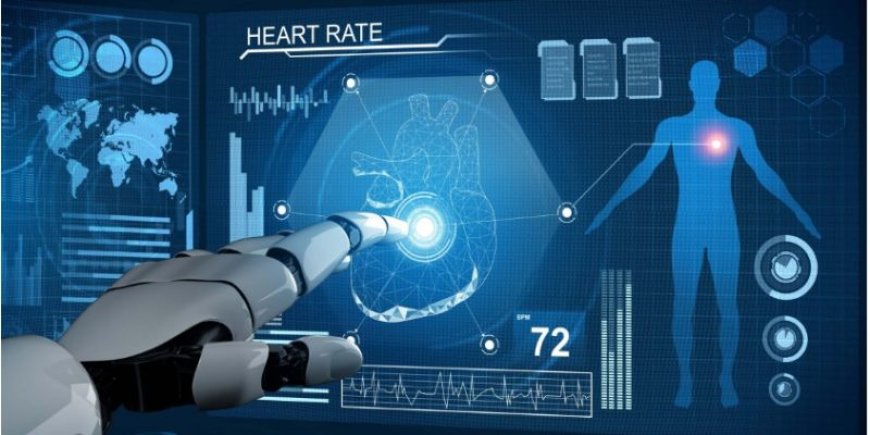How is Hadoop used in the healthcare industry?
How is Hadoop used in the healthcare industry

The healthcare industry generates an enormous amount of data every day, from patient records to medical research, diagnostics, and imaging. Managing and analyzing this vast amount of data can be challenging using traditional data storage and processing systems. Hadoop, an open-sources framework for processing and storing large datasets, has emerged as a solution to this problem. With its ability to handle big data and provide scalable, distributed storage, Hadoop is revolutionizing healthcare operations, improving patient care, and driving innovation in medical research. This blog explores the various ways Hadoop is being used in the healthcare industry to optimize data management, enhance decision-making, and improve overall efficiency. Professionals looking to enhances their skills can benefit from enrolling in a Hadoop Course in Chennai.
Hadoop in the healthcare industry
Managing Electronic Health Records (EHRs)
Electronic Health Records (EHRs) are one of the most critical aspects of modern healthcare systems. These records contain detailed patient information, such as medical history, lab results, treatment plans, and diagnoses. The sheer volume of EHRs being created each day can be overwhelming for traditional systems.
-
How Hadoop Helps: Hadoop's distributed file system (HDFS) provides a cost-effective solution for storing large volume of EHRs. Its scalability allows healthcare organizations to handle growing datasets without worrying about capacity limits.
-
Impact: Hospitals and clinics can store and retrieve patient records quickly, ensuring that healthcare professionals have access to up-to-date and accurate information, which is essential for timely and accurate treatment.
Improving Medical Research and Data Analytics
Medical research involves working with vast datasets to understand disease patterns, identify new treatments, and develop advanced medical technologies. Analyzing this data efficiently is critical for accelerating research outcomes and improving patient care.
-
How Hadoop Helps: Hadoop, along with its ecosystem tools like Hive and Pig, allows researchers to store, process, and analyze massive datasets efficiently. It also enables distributed computing, meaning researchers can work with data from various sources simultaneously.
-
Impact: This improves the speed and accuracy of medical research, potentially leadings to breakthroughs in disease prevention, treatment, and healthcare delivery.
Predictive Analytics for Disease Management
Predictive analytics is a powerful tools for anticipating patient needs and preventing diseases. By analyzing historical data, healthcare providers can predict the likelihood of a patient developing certain condition, like as diabetes or heart disease.
-
How Hadoop Helps: Hadoop's capability to process large volumes of healthcare data enables the development of predictive models. These models can analyze historical health data, genetic factors, lifestyle choices, and more to identify patterns that suggest a higher risk of disease. Platforms like Hadoop Online Course can help individuals gain expertise in implementing such models.
-
Impact: Predictive analytics can help doctors take preventive measures, create personalized treatment plans, and reduce healthcare costs by catching potential issues before they become severe.
Real-Time Data Processing for Patient Monitoring
In critical care unit or for patients with chronic conditions, real-time monitoring is essential for immediate intervention. Data collected from patient monitoring devices, like as heart rate monitors, glucose sensors, and other wearables, is continuously generated.
-
How Hadoop Helps: Hadoop’s ecosystem can process this real-time data by integrating with tools like Apache Storm or Apache Spark. This enables healthcare professionals to analyze and act on patient data instantly.
-
Impact: Real-time monitoring can reduce response times to emergencies, improve patient outcomes, and increase overall patient safety by alerting healthcare providers to any abnormalities immediately.
Optimizing Healthcare Operations
Managing the daily operations of healthcare facilities involves handling a significant amount of data, from scheduling and patient admissions to inventory management and supply chain logistics. Efficient data management is crucial to streamline operations and reduce costs.
-
How Hadoop Helps: Hadoop can process operational data from multiple sources and optimize workflow management, inventory tracking, and supply chain operations. By analyzing this data, healthcare facilities can improve resource allocation and reduce waste.
-
Impact: This results in cost savings, more efficient operations, and better overall patient experience, as healthcare providers can offer faster, more reliable services.
Ensuring Data Security and Compliance
The healthcare industry is subjects to strict regulations, like as HIPAA (Health Insurances Portability and Accountability Act) in the U.S., which require the protection of patient data. Storing and processing healthcare data in compliance with these regulations is crucial.
-
How Hadoop Helps: Hadoop’s security features, including Kerberos authentication and HDFS encryption, help ensure that sensitive healthcare data is protected. Additionally, Hadoop's distributed storage ensures that data is replicated and secured across multiple nodes.
-
Impact: Healthcare organizations can meet regulatory compliance requirements while ensuring that patient data is secure and accessible only to authorized personnel.
Hadoop is playing a transformative role in the healthcare industry by enabling the efficient management, analysis, and storage of vast amounts of data. From improving patient care through predictive analytics to streamlining hospital operations and ensuring data security, Hadoop offers solutions that drive innovation and efficiency. As healthcare organizations continue to adopt big data technologies, Hadoop will remain a cornerstone in delivering better outcomes, reducing cost, and improving the overall patient experience.
With its scalability, cost-effectiveness, and flexibility, Hadoop is poised to revolutionize healthcare further. By choosing the right training program, such as those offered at a leading IT Training Institute in Chennai, individuals can stay ahead of the curve and lead the way in healthcare innovation.
What's Your Reaction?















![*Love Hurts [2025] 'ENGLISH' HD-4K FuLLMovie](https://news.bangboxonline.com/uploads/images/202502/image_430x256_67a7ec31275e4.jpg)
![*Back in Action [2025] 'ENGLISH' HD-4K FuLLMovie](https://news.bangboxonline.com/uploads/images/202502/image_430x256_67a7db369418b.jpg)
![*Kraven the Hunter [2025] 'ENGLISH' HD-4K FuLLMovie](https://news.bangboxonline.com/uploads/images/202502/image_430x256_67a7d9a33fd6c.jpg)
![*Sonic the Hedgehog 3 [2025] 'ENGLISH' HD-4K FuLLMovie](https://news.bangboxonline.com/uploads/images/202502/image_430x256_67a7d7d7046d6.jpg)

